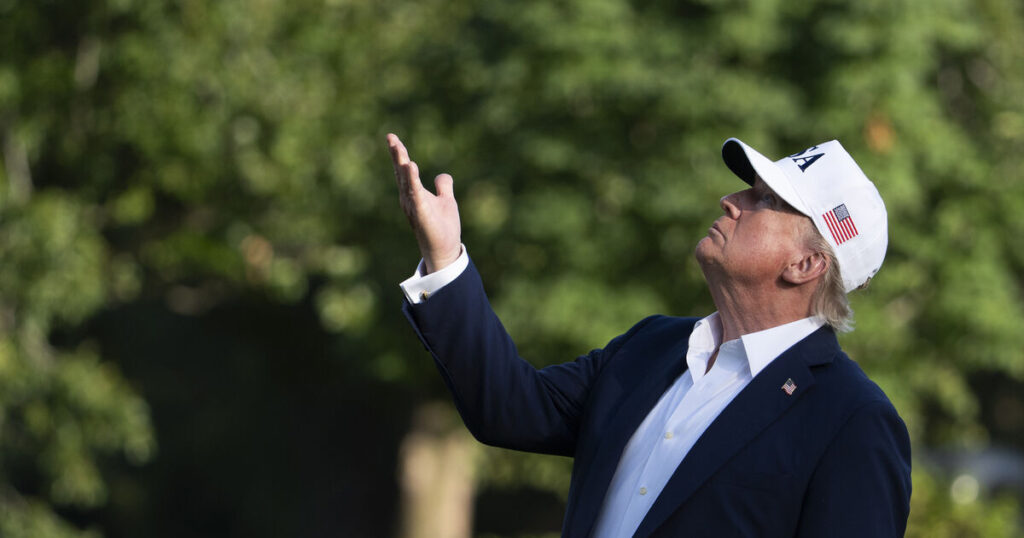The Trump administration is increasing pressure on trading partners to finalize agreements before a Wednesday deadline. The US intends to start sending letters warning countries that higher tariffs could be implemented beginning August 1.
This action further destabilizes the situation for businesses, consumers, and America’s trade partners. Uncertainty persists regarding which countries will receive these notifications, whether any changes will occur in the coming days, and if President Donald Trump will once again postpone the imposition of tariffs.
Mr. Trump and his senior trade advisors maintain that while they may extend the negotiation period, the administration is currently exerting maximum pressure on other nations.
Kevin Hassett, Director of the White House National Economic Council, stated on CBS’s Face The Nation that Mr. Trump will determine when to cease negotiations.
“The United States is always willing to talk to everybody about everything,” Mr. Hassett said. “There are deadlines, and there are things that are close, so maybe things will push back past the deadline or maybe they won’t. In the end the president is going to make that judgment.”
Stephen Miran, Chairman of the White House Council of Economic Advisers, also suggested that countries negotiating in good faith and making concessions could “sort of, get the date rolled.”
The increased tariffs announced by Mr. Trump on April 2 threatened to destabilize the global economy and potentially trigger broader trade wars.
However, a week later, following market panic, his administration suspended the majority of these higher import taxes for 90 days, effectively delaying their implementation. This 90-day negotiating period, ending July 9, has only resulted in announced deals with the United Kingdom and Vietnam.
Mr. Trump had previously imposed elevated tariff rates on numerous nations with significant trade surpluses with the US, and a blanket 10% tax on imports from all countries, citing an economic emergency. Separately, there are 50% tariffs on steel and aluminum, and a 25% tariff on vehicles.
Since April, few foreign governments have established new trade agreements with Washington, despite the Republican president’s demands.
Mr. Trump informed reporters on Friday that letters outlining tariff rates for countries failing to reach a deal could be sent out as early as Saturday, but that the US would not begin collecting these taxes until August 1.
On Sunday, he adjusted this statement, saying that letters would be sent starting Monday – “could be 12, could be 15” – to foreign governments, indicating the planned tariffs for each.
“We’ve made deals also,” Mr. Trump told reporters before returning to the White House from his home in New Jersey. “So we’ll get to have a combination of letters, and some deals have been made.”
Neither he nor his advisors have specified which countries will be receiving these letters.
Treasury Secretary Scott Bessent dismissed the idea that August 1 was a firm deadline and declined to comment on potential outcomes on Wednesday.
“We’ll see,” Mr. Bessent said on CNN’s State Of The Union. “I’m not going to give away the playbook.”
He claimed the US was “close to several deals” and predicted several large announcements in the coming days, without providing specific details.
“I think we’re going to see a lot of deals very quickly,” Mr. Bessent said.


